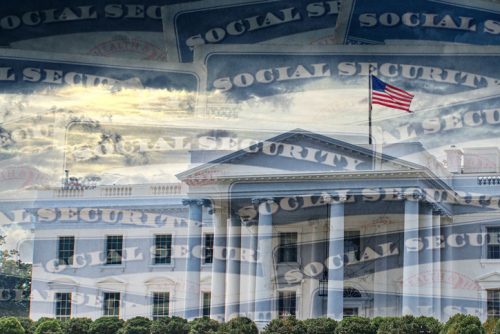
Despite deep polarization across the U.S., a research brief from the National Institute on Retirement Security finds common ground when it comes to Americans’ support for Social Security and defined benefit pension plans. At the same time, Views of Retirement in America by Political Party Affiliation finds Americans across party lines are worried about retirement.
The research finds that most Americans agree that the nation faces a retirement crisis, with Republicans reporting this sentiment at a slightly higher level (81 percent) than Independents (79 percent) and Democrats (78 percent). When asked about their level of concern about achieving financial security in retirement, more than half of Democrats, Republicans, and Independents say they are concerned.
The key findings of this issue brief are as follows:
- Despite growing polarization, Americans are united in their retirement worries. Across party lines, Americans agree that the nation faces a retirement crisis, with Republicans reporting this sentiment at a slightly higher level (81 percent) than Democrats (78 percent) and Independents (79 percent).
- Debt is problematic and impeding retirement savings for Americans regardless of party. A large share of Democrats (74 percent), Republicans (68 percent), and Independents (68 percent) believe that their level of debt is problematic. About three-fourths of Democrats, Republicans, and Independents who have debt say it is preventing them from saving for retirement.
- Across party lines, Americans hold pensions in high favor. Across the board, Democrats (81 percent), Republicans (80 percent), and Independents (76 percent) have positive views about pension plans. Regardless of party, a large share of Americans say all workers should have a pension and government should make it easier for employers to offer pensions.
- Democrats, Republicans, and Independents support Social Security and want action now to protect benefits. Americans overwhelmingly agree across party lines that Social Security must remain a priority, with 90 percent of Democrats in agreement, followed by Independents (88 percent), then Republicans (86 percent). Similarly, Americans of all parties want lawmakers to act now to shore up Social Security funding and expect the next administration and Congress to solve the Social Security financial shortfall.
- Long-term care is a significant worry for Democrats, Republicans, and Independents. The vast majority of Americans across political views say they are worried about the cost of long-term nursing care, with Independents at 83, Democrats at 81 percent, and Republicans at 80 percent. When it comes to views about government doing more to help Americans get access to quality long-term, the overwhelming majority across the political spectrum agree that government should take action.
This issue brief is based upon a national survey of working-age Americans conducted by Greenwald Research, and it supplements the 2024 national opinion report, Retirement Insecurity 2024: Americans’ Views of Retirement. Read the report.
Related Research and Analysis


Debunking the Job-Hopping Myth: A Data-Driven Look at Tenure and Turnover Among Younger Workers
Contrary to popular belief that Millennials and Generation Z employees are constantly switching jobs, new research from the National Institute on Retirement Security finds that younger workers today show job retention patterns that closely mirror previous generations at the same stage of their careers.

Social Security at 90: A Bipartisan Roadmap for the Program’s Future
The National Academy of Social Insurance, AARP, the National Institute on Retirement Security, and the U.S. Chamber of Commerce have released a new report detailing American’s views of retirement, Social Security at 90: A Bipartisan Roadmap for the Program’s Future.

Social Security’s First 90 Years: A History of Bipartisan and Intergenerational Support
As Social Security approaches its 90th anniversary, a new report from the National Institute on Retirement Security finds that public support remains strong for Social Security, and Americans become more confident in Social Security as they age.

